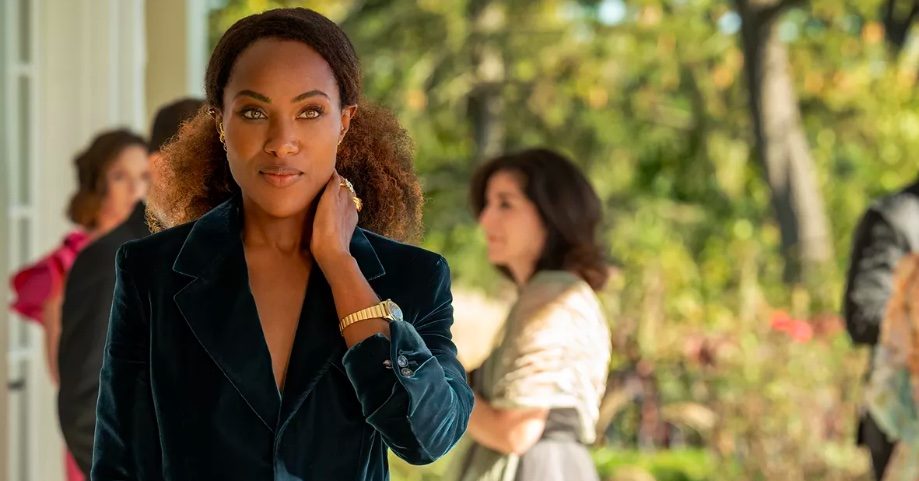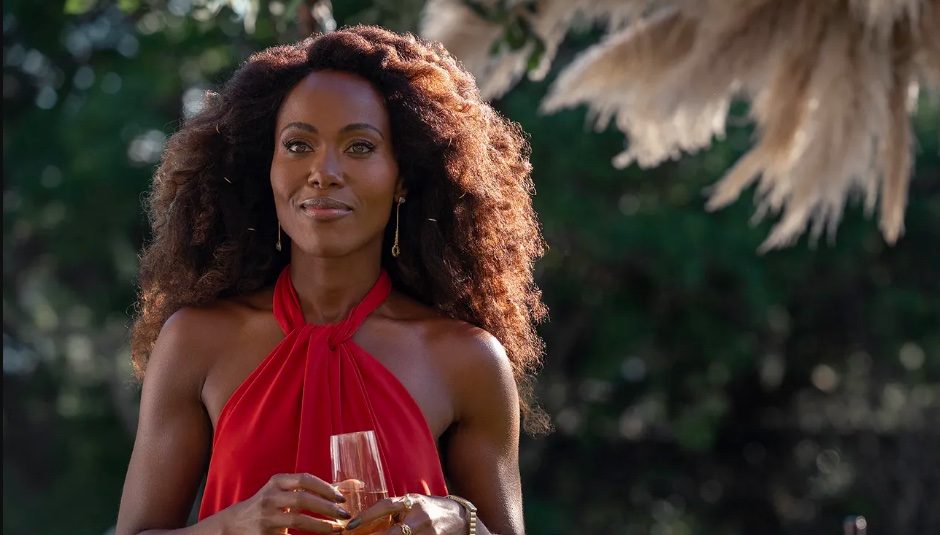A writer goes on a cross-country trip in Starz’s ‘Three Women’ to find the titular women and write about their sex lives. Each woman presents a different facet of female desire and experience. One of them is Sloane Ford (DeWanda Wise), a successful restaurateur who enjoys a happy marriage with her husband. The happiness of her marriage makes others jealous of her, but that’s not what concerns Sloane. Instead, we follow her on a journey to find her identity, separate from her husband, even though she loves him very much. Her story is made all the more relatable by the fact that it is based on the experiences of real women.
Sloane Ford is an Amalgamation of Real Women Lisa Taddeo Interviewed
Sloane Ford is a pseudonym given to the woman that Lisa Taddeo interviewed in the course of the research for her non-fiction book, ‘Three Women,’ on which the Starz series is based. While the book focuses on the experience of that one woman, when it comes to the series, Sloane represents several women whom Taddeo interviewed but didn’t include in the book. One of the women that she’d talked to was from Dominica.

The bisexual Black woman was one of the more interesting people out of hundreds of others that Taddeo had met with. However, at one point, the woman decided that she didn’t want her story to become public and opted out of the book. Taddeo described Sloane as “an exciting woman with a bright, wild life” who was “advocating for herself” as “a louder presence” whose story she wanted to bring to the world. When writers Tori Sampson and Chisa Hutchinson were brought on board, they brought their own experiences to the table and helped expand Sloane’s story.
In the book, the woman who gets the moniker of Sloane is from Newport, whom Taddeo found after hearing rumors about her marriage and sex life. By then, she had already met Lina Parish and Maggie Wilken and wanted to find someone with a bit brighter touch to their story. In her book, Lisa mentioned that Sloane was a swinger and a matter of jealousy and gossip because she and her husband would apparently bring a third person to their bed. The author also stated that Sloane’s husband liked seeing her having sex with other men.
What interested Taddeo even more was how people were shocked that Sloane and her husband allegedly wanted to have sex with each other every day. This gave her quite a perspective on how the world sees a woman’s desire. It was this fascination that led her to spend 18 months talking with Sloane and knowing more about her, her sexual desires and feelings, and what she wanted out of her seemingly perfect marriage. They would meet in coffee shops and drive around town, and Sloane would give Taddeo her piece that the author immortalized, first in her book and then in the TV show.
Lisa Taddeo Gave Sloane a Pseudonym to Protect Her Anonymity
While Taddeo takes us deep into Sloane’s heart and mind, she does so without revealing her true name. The reason behind this was her concern for Sloane’s safety and reputation. While the author also gave a pseudonym to Lina Parish, she confessed that Sloane was the one who had more to lose, given her social standing. Taddeo revealed that curious people would often send her messages on social media wanting to have confirmation about Sloane’s true identity. Both she and Sloane were concerned about her identity going public, so a lot of efforts were taken to keep it hidden.

One of the things the show does to protect Sloane’s identity is by making her an African American woman. In the book and real life, she is a white woman. But in bringing her story to the screen, especially considering that it became a composite of several women and wasn’t about just one woman anymore, it felt justified to bring an experience other than a white woman’s to the table. Taddeo explained she’d interviewed a lot of African-American and Asian women during her research because she wanted to expand her research pool and present a more varied experience in terms of class, race, and sexual orientation. She was in touch with about 30 such women for several months, but she found that their narratives came with more restraints than usual, and they were more hesitant to completely open up to her, which was entirely justified.
Read More: Three Women: Is Maggie Wilken Based on a Real Woman? Where is She Now?


You must be logged in to post a comment.